
Synopsis – Part 2
LULU: ALBAN BERG
George Perle
Abbreviated and adapted from George Perle, The Operas of Alban Berg, Volume Two: Lulu (Los Angeles: University of California Press, 1989 [1985]) pp. 46-50
ACT II SCENE 1
The magnificent living room of Schön s home. Countess Geschwitz has just invited Lulu to a ball for women artists. She takes her leave of Schön and is escorted to the door by Lulu. Schön, alone: ‘This, the evening of my life! The plague is in the house. Thirty years of work, and this my family circle!’ He looks about him. ‘God knows who may be eavesdropping again!’ He draws a revolver from his pocket and pulls the drawn curtain aside. There is no one there. Hearing Lulu returning, he replaces the revolver. Lulu: ‘Couldn’t you get away this afternoon? I should so much like to go for a drive.’ Schön: ‘Just the day when I must be at the Exchange. You know I’m not free today.’ Lulu, putting her arms round his neck: ‘For weeks and months now, I’ve had nothing of you.’ Schön strokes her hair. ‘Your lightheartedness should cheer up my old age.’ They leave the room together.

Alban Berg, Lulu, Dietrich Henschel (Schön) & Barbara Hannigan (Lulu) | Orchestre Symphonique de la Monnaie, Paul Daniel, 2012
The Countess cautiously returns through the center door. She hides behind a screen. Schigolch emerges from the drapery in the gallery. He comes down the steps. Rodrigo, an acrobat, and Hugenberg, a schoolboy, have also been hiding in the gallery. Rodrigo comes down, carrying Hugenberg, who is visiting Lulu for the first time. They help themselves to Schön’s liquor. Schigolch and Rodrigo explain that today this is their home, since this is the day on which Schön attends to his affairs at the Stock Exchange. Lulu returns. ‘I’m expecting a visitor, children.’ Rodrigo asks if it is Prince Escerny. ‘The Prince is traveling,’ Lulu replies. She goes upstairs to the gallery. Rodrigo, to Schigolch: ‘He once wanted to marry her, you know.’ Schigolch: ‘I also once wanted to marry her.’ Rodrigo: ‘You once wanted to marry her?’ Schigolch: ‘Didn’t you once want to marry her?’ Rodrigo: ‘Of course I once wanted to marry her!’ Schigolch: ‘Who has not once wanted to marry her?’ ‘So she’s not your child?’ Rodrigo asks. ‘It doesn’t cross her mind.’ ‘Then what’s her father’s name?’ asks Hugenberg. ‘She never had one,’ replies Schigolch. Lulu returns from the gallery and Schigolch asks whether she has locked the door upstairs. She shows him the key. ‘Better have left it in the lock.’ ‘Why?’ ‘So that it can’t be opened from the outside.’ ‘Isn’t he at the Exchange, then?’ asks Rodrigo. ‘Oh yes,’ she replies, ‘but he’s suffering from persecution mania.’

Alban Berg, Lulu, Ivan Ludlow (Rodrigo) & Barbara Hannigan | Orchestre Symphonique de la Monnaie, Paul Daniel, 2012
Ferdinand, a servant, enters and announces, ‘Dr. Schön.’ Rodrigo hides behind the curtains. Schigolch takes the key from Lulu and drags himself up the stairs. Hugenberg hides under the table. Lulu, to Ferdinand: ‘Show him in!’ It is Alwa, whom Lulu is expecting. Ferdinand shows him in. Alwa: ‘The matinee is going to take place by artificial light, I think. I’ve— .’ He sees Schigolch, who is still laboriously climbing the stairs. ‘What’s that?’ Lulu replies that he is an old war comrade of his father’s. ‘Is my father here, then?’ asks Alwa. ‘He had a drink with him. Then he had to go to the Exchange.’ The progression of the dialogue between Lulu and Alwa, in which Alwa is at last led to confess his love for her, can be summarized as follows: Alwa, who has looked upon Lulu with reverence and stood up for her like a brother when he was a child, who approached her with admiration and interest as an artist, has come to take her to a matinee. Lulu, however, in a beguiling costume, detains him. Alwa looks upon her with shy pleasure, as something unearthly. Her happiness is sacred to him, his goal. And he, immeasurably superior though he is to all others, disparages his position in relation to her, feels uplifted through her and is grateful to her. Nevertheless, he knows the danger that threatens him: the dissolution of his intrinsic self, the possibility of criminal behavior. Overcome by her provocations, he kisses her hand, begins to feel her body, implores her, ‘Destroy me!’, buries his head in her lap and groans, ‘I love you.’

Alban Berg, Lulu, Barbara Hannigan & Charles Workman (Alwa) | Orchestre Symphonique de la Monnaie, Paul Daniel, 2012
In the meantime his father has appeared in the gallery and is watching the scene below. There is dumb play between Rodrigo and Schön, each having become aware of the other’s presence. Schön points his revolver at Rodrigo; the latter gestures to him that he should direct it at Alwa. Schön cocks the revolver and aims at Rodrigo, and Rodrigo darts back behind the curtain. Schön, a newspaper in his hand, comes down the stairs. He takes Alwa, who seems to be half-asleep, by the shoulder. ‘A revolution has broken out in Paris. Nobody knows what to write.’ He leads Alwa out of the room. Rodrigo bursts out of his hiding place and rushes for the stairs. Lulu warns him that he can’t get out that way. ‘You’ll run right into his arms.’ He hides behind the portières. Schön returns, revolver in hand, and lifts the curtain at the window where Rodrigo has been hiding. ‘Where’s he gone?’

Alban Berg, Lulu, Ivan Ludlow & Barbara Hannigan | Orchestre Symphonique de la Monnaie, Paul Daniel, 2012
Schön turns to Lulu: ‘You creature, dragging me through the gutter to a martyr’s death! You destroying angel! You inexorable fate! You joy of my old age! You hangman’s noose!’ ‘How do you like my new dress?’ asks Lulu. Schön: ‘Get away from me, or by tomorrow I may be out of my mind and my son will swim in his own blood.’ In a state of ultimate desperation, as a mad climax to his earlier attempts to sever his tie with Lulu by marrying her off so that some external power would enforce the clean break with her that he himself is too weak to effect, he gives her his revolver and demands that she shoot herself. Lulu, testing the revolver, fires a shot at the ceiling. Rodrigo leaps from behind the portières, dashes up the stairs, and disappears. ‘What was that?’, Schön asks. ‘Nothing,’ replies Lulu. ‘You’re suffering from persecution mania.’

Alban Berg, Lulu, Dietrich Henschel & Barbara Hannigan | Orchestre Symphonique de la Monnaie, Paul Daniel, 2012
Searching everywhere, Schön upsets the screen and discovers the Countess. ‘Now you will have to stay for dinner,’ he says, pushing her into an adjoining room and locking the door. He turns the revolver in Lulu’s hand away from himself, aiming it at her breast. ‘Let’s get it over with! It will be the happiest recollection in my life. Pull the trigger!’ ‘You can get a divorce,’ suggests Lulu. ‘That’s all that’s needed! So that tomorrow the next one can amuse himself where once I shuddered from abyss to abyss, the suicide at my back and you in front of me.’ He reaches for the revolver. ‘I’ll spare you the trouble.’ Lulu wrenches herself away from him. She speaks in a decisive, self-confident tone: ‘If men have killed themselves for my sake, that doesn’t lower my worth. You knew as well why you took me for your wife, as I knew why I took you as my husband. You had betrayed your best friends with me, you couldn’t very well also betray yourself with me. If you sacrifice the evening of your life to me, you’ve had the whole of my youth in exchange. I’ve never in the world wanted to seem anything other than what I’ve been taken for, and no one has ever taken me for anything other than what I am.’

Alban Berg, Lulu, Barbara Hannigan & Dietrich Henschel | Orchestre Symphonique de la Monnaie, Paul Daniel, 2012
Schön rushes at her. ‘Down, murderess!’ He forces her to her knees. Hugenberg jumps up from under the tablet crying, ‘Help!’ Schön, distracted, turns around, and Lulu fires five shots into her husband’s back. Falling forward, he is caught by Hugenberg, who lowers him into a chair. ‘Merciful God!’ cries Lulu, rushing to him. Schön curses her and calls for Alwa. Alwa, crossing the gallery and coming down the stairs: ‘My father! Oh God! My father!’ Alwa tries to lift him. Schön: ‘Don’t let her get away! You’re the next one!’

Alban Berg, Lulu, Barbara Hannigan, Dietrich Henschel, Charles Workman | Orchestre Symphonique de la Monnaie, Paul Daniel, 2012
Alwa and Hugenberg try to help Schön into the adjoining bedroom where he had locked the Countess. They open the door and the Countess walks out. Schön draws up stiffly when he sees her. ‘The devil!’ He falls. Lulu throws herself down beside him, kisses him: ‘It’s all over.’ She rises and goes towards the stairs. Alwa: ‘Don’t move!’ Lulu throws herself at Alwa’s feet: ‘You can’t hand me over to the police. I’m still young. I’ll be true to you my whole life long. Look at me, Alwa!’ There is knocking at the door. The curtain falls upon Hugenberg’s words as Alwa goes to the door: ‘I’ll be expelled from school!’

Alban Berg, Lulu, Charles Workman & Barbara Hannigan | Orchestre Symphonique de la Monnaie, Paul Daniel, 2012
THE SILENT FILM IN ALBAN BERG’S ‘LULU’
Director: Matthew Richardson | Lulu: Christine Schäfer
Glyndebourne, 1996 | London Philharmonic Orchestra, Andrew Davis
The orchestral interlude between the two halves of the opera accompanies a silent film that depicts Lulu’s history from the moment of her arrest to the moment of her escape from prison. The film thus represents events that are referred to in the drama and that link the two plays but are not depicted in the dramatic action. Lulu is arrested, committed for trial, tried and imprisoned, and then—in a sequence that shows visually analogous events in reverse order, accompanied by the retrograde of the music that has accompanied the film to this point—she is removed from her cell because of illness, examined by a medical council, committed to the isolation ward of the hospital, and escapes, disguised as Countess Geschwitz.
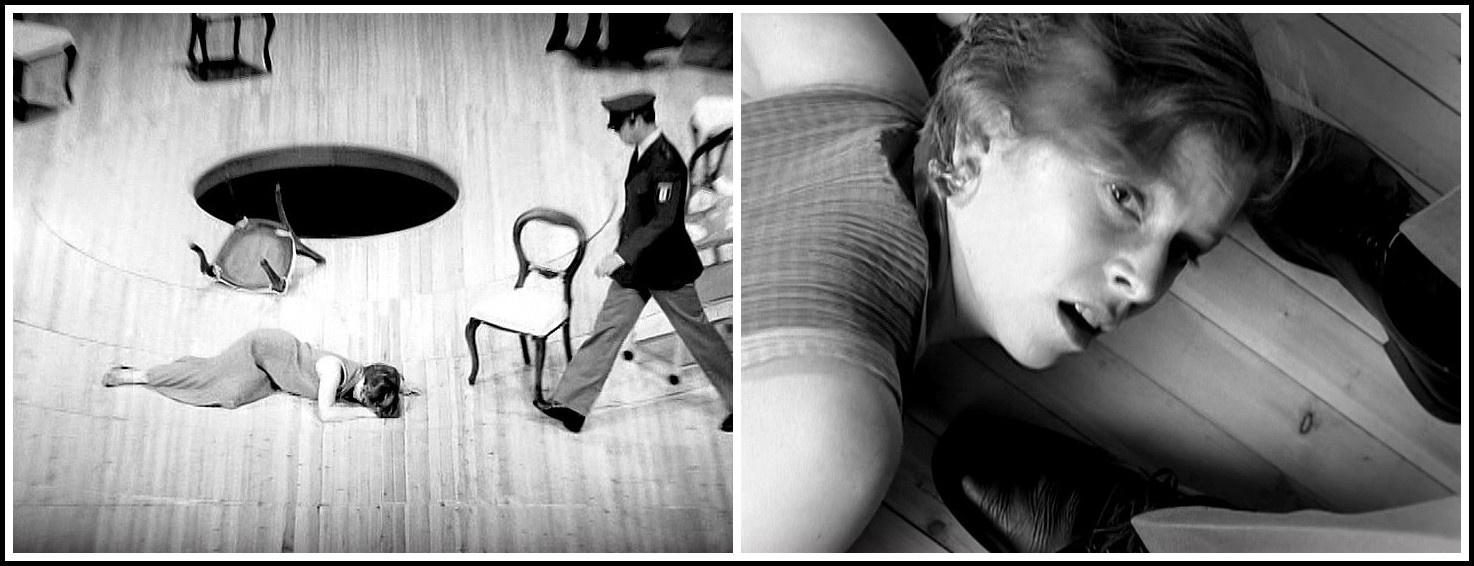
Lulu is arrested.
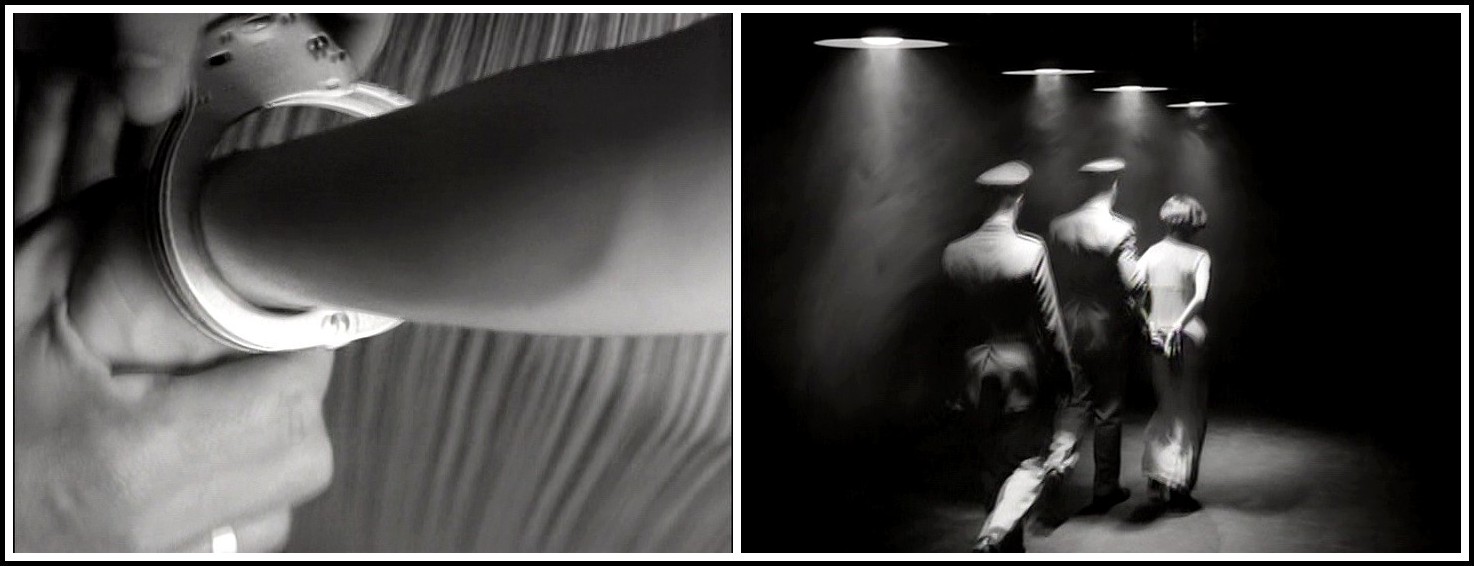
Lulu is taken to prison.

The prisoner Lulu’s prison formalities, the evidence.

Lulu’s trial for the murder of Schön…

…and the verdict: Guilty!
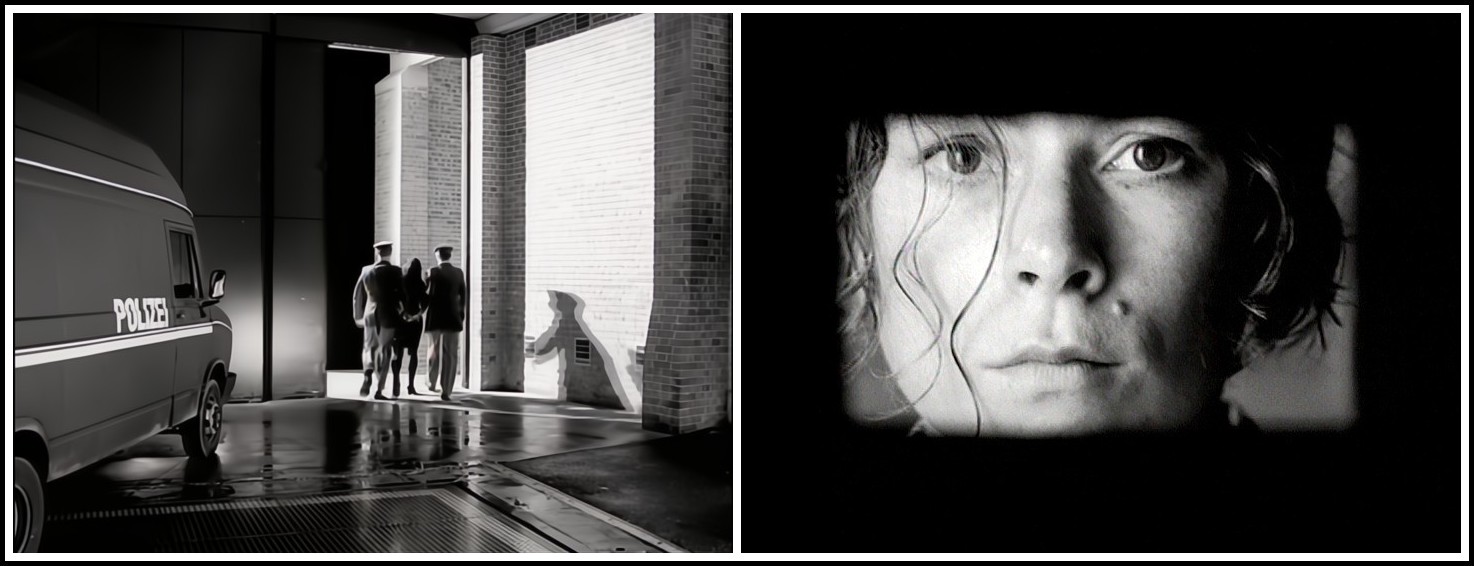
Lulu back in prison, serving her sentence.
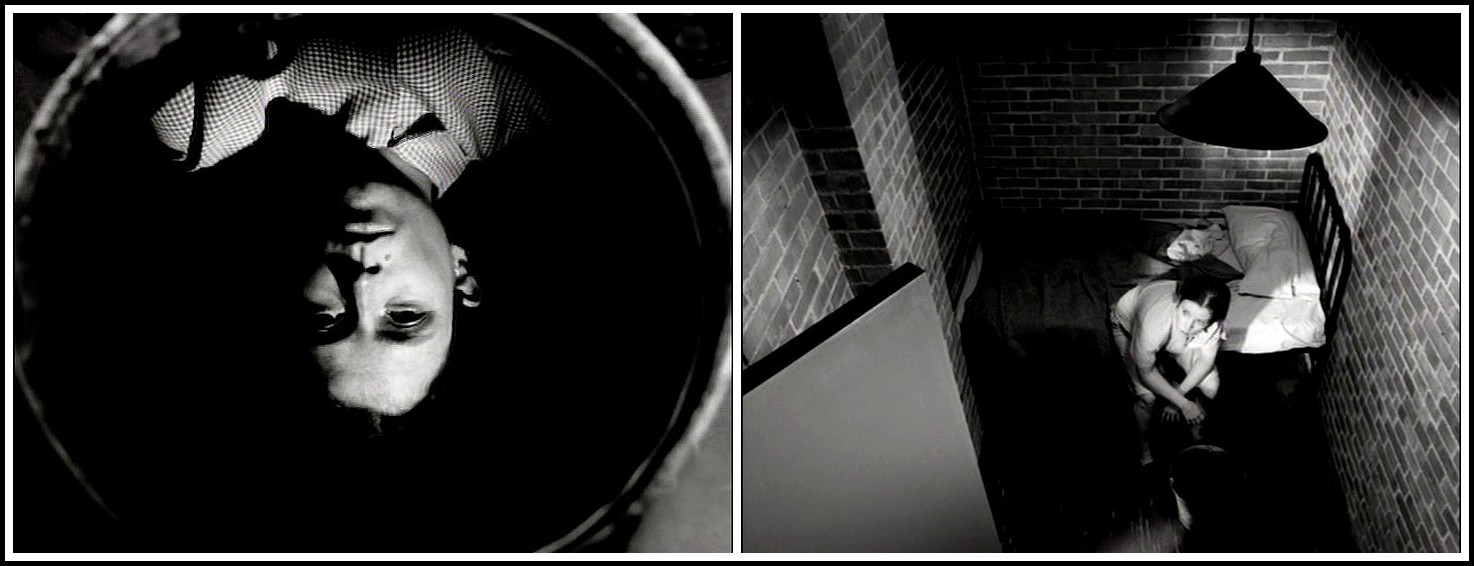
Lulu, her face reflected in a bucket of water, languishes in her prison cell, until…

…Geschwitz arrives to implement the escape plan hatched by Lulu’s entourage. They exchange underwear, so that Lulu now wears Geschwitz’s cholera-infected panties.
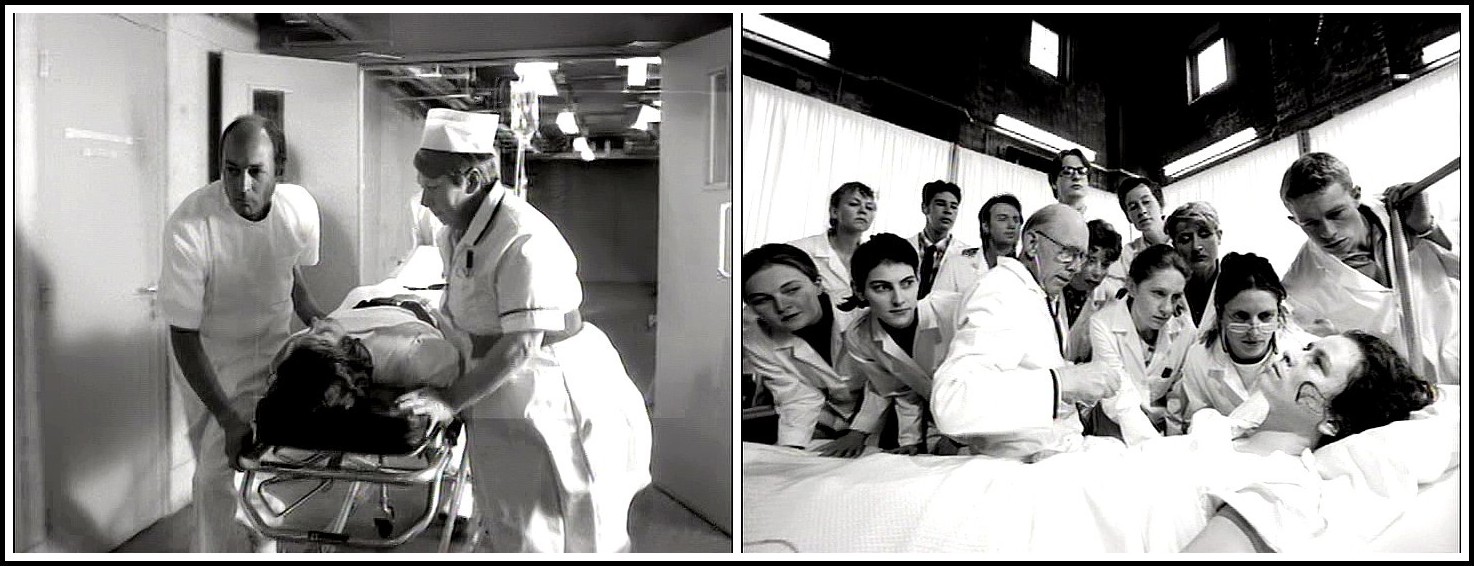
Lulu, down with cholera, is rushed to hospital…

…where she is successfully treated.
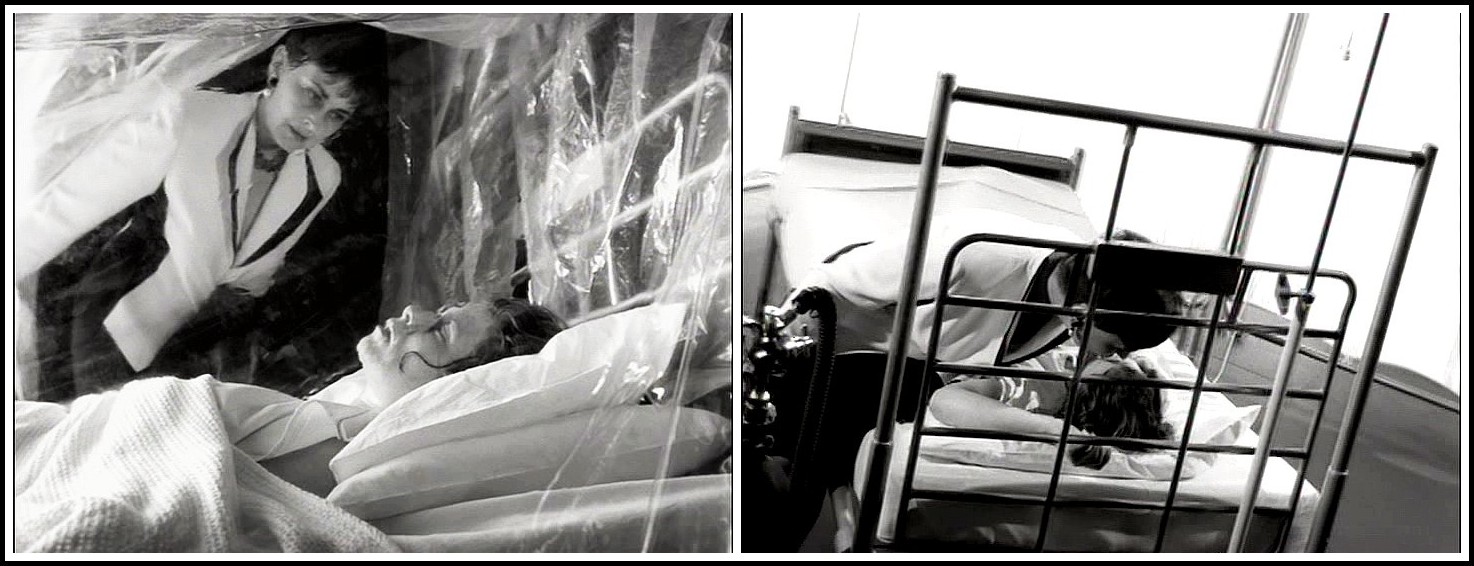
Geschwitz surreptitiously enters Lulu’s hospital room…
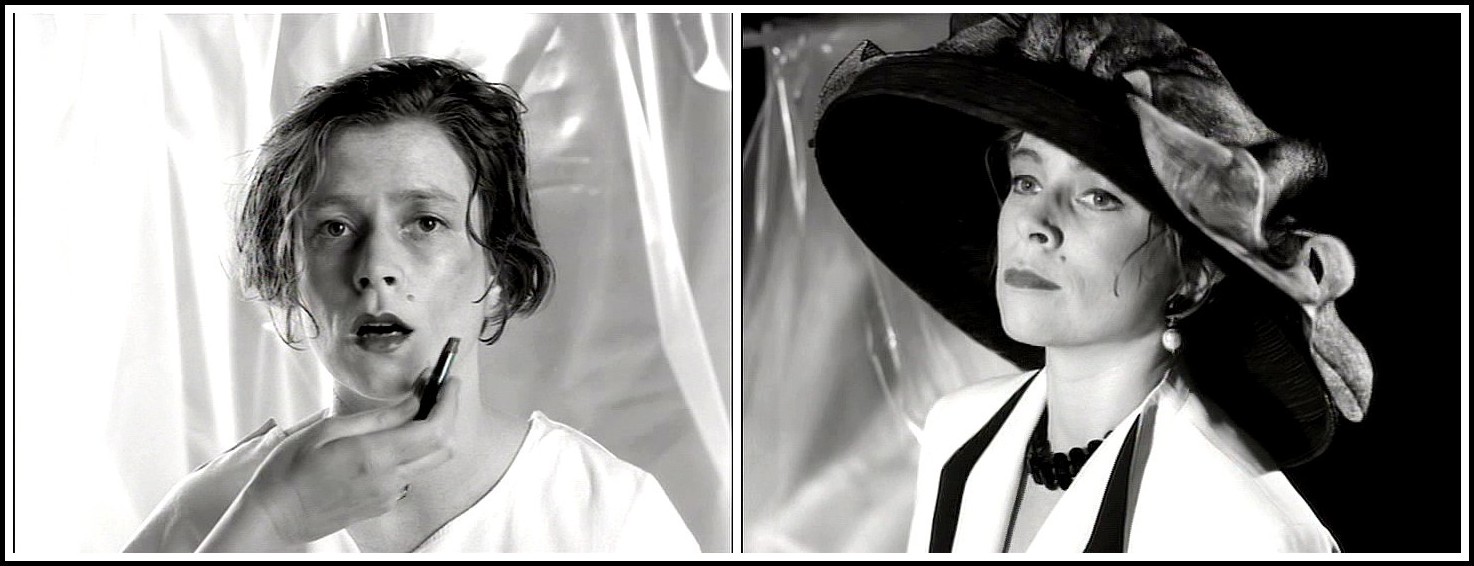
…where, via makeup and clothes, she disguises Lulu as herself.
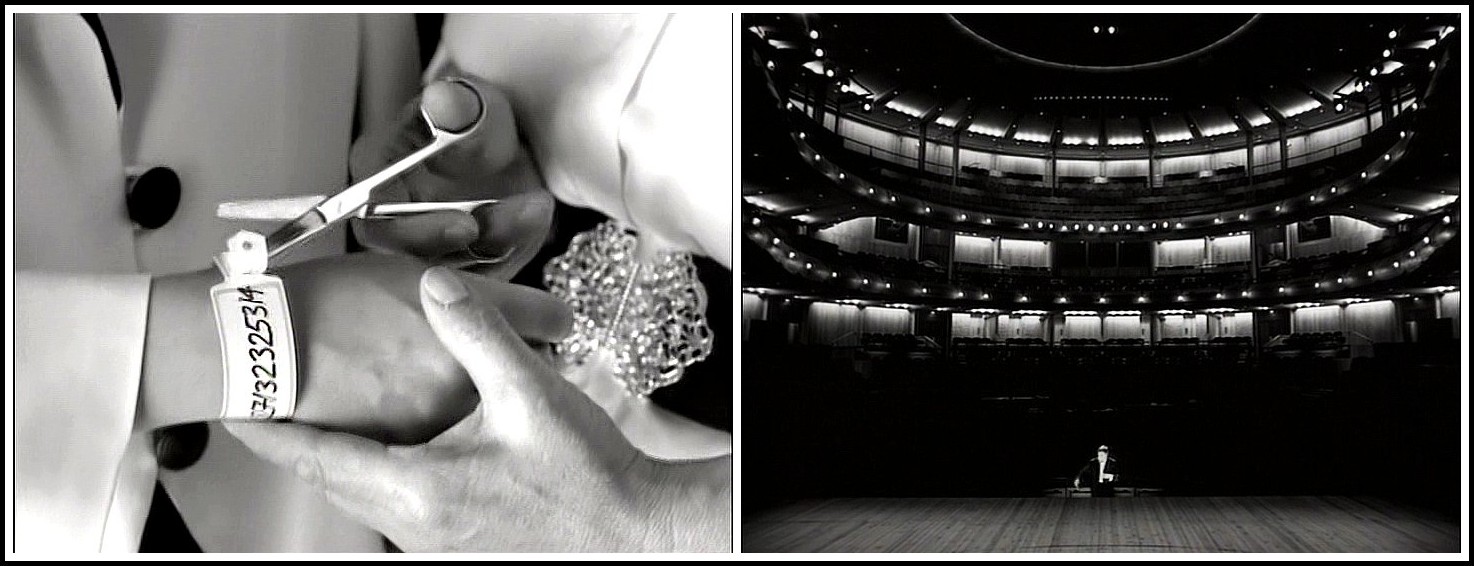
Geschwitz cuts off Lulu’s hospital ID tag. Lulu escapes from the hospital/prison and returns ‘home’.
ACT II SCENE 2
Alwa, awaiting Lulu’s return from prison, is now a fellow-conspirator of the strange assortment of characters that gathered in the apartment in the preceding act. Together they have plotted Lulu’s escape. Rodrigo, Countess Geschwitz, and Alwa are awaiting Schigolch. In connection with the fantastic plan devised by the Countess for Lulu’s escape, the two women had allowed themselves to become infected with cholera and were together in the isolation ward of the hospital. The Countess has been discharged as cured. She expects to return to the hospital ward on a pretext and to change places with Lulu as soon as Schigolch arrives. He has made arrangements for Lulu to cross the border with Rodrigo, who, though in good health, has spent three months in the hospital ‘to spy out the land’ (according to his own unreliable assertions). Rodrigo is now playing the part of a servant in the house that Alwa has inherited from his father, to see that no strangers come into the house. He evidently expects to marry Lulu and to make her his partner in a circus act. However, he is not willing to leave at once, since his costumes aren’t ready, so he suggests that Schigolch escort her.

Alban Berg, Lulu, Natascha Petrinsky (Geschwitz), Charles Workman (Alwa), Ivan Ludlow (Rodrigo) | Orchestre Symphonique de la Monnaie, Paul Daniel, 2012
Schigolch arrives to fetch the Countess. Alwa offers the Countess a large sum of money, but she refuses to accept it. Schigolch and the Countess leave.

Alban Berg, Lulu, Natascha Petrinsky (Geschwitz), Charles Workman (Alwa), Pavlo Hunka (Schigolch), Ivan Ludlow (Rodrigo) | Orchestre Symphonique de la Monnaie, Paul Daniel, 2012
Rodrigo is angry with Alwa for offering money to the Countess, and insists that his financial position has been as badly damaged by the affair as hers has been. Alwa points out that the Countess has not only reimbursed him for every penny of his own money that he has spent but has also been paying him a monthly allowance for his collaboration. ‘If this heroic undertaking of Countess Geschwitz hadn’t come along for you, you would be lying drunk in the gutter somewhere, without a penny.’ Rodrigo asks Alwa what would have happened to him if he hadn’t sold his father’s newspaper for two million marks. ‘What work do you do? You wrote a melodrama in which my fiancée’s legs were the two main characters and which no decent theater will put on. You poor fish! You cheeky beggar!’.

Alban Berg, Lulu, Charles Workman & Ivan Ludlow | Orchestre Symphonique de la Monnaie, Paul Daniel, 2012
There is a knock. It is Hugenberg, who has just escaped from a reformatory. He has a plan for Lulu’s escape and needs Aiwa’s assistance.

Alban Berg, Lulu, Anna Maistriau (Hugenberg) & Charles Workman (Alwa) | Orchestre Symphonique de la Monnaie, Paul Daniel, 2012
Rodrigo tells him that Lulu has died and shows him a newspaper report of her having contracted cholera. Hugenberg leaves.

Alban Berg, Lulu, Ivan Ludlow (Rodrigo) & Anna Maistriau (Hugenberg) | Orchestre Symphonique de la Monnaie, Paul Daniel, 2012
Dragging footsteps are heard in the gallery. Rodrigo: ‘Here she is!— The future most magnificent trapeze artist of our time!’ The curtains above the stairs are parted and Lulu, dressed as the Countess, comes slowly downstairs, leaning on Schigolch’s arm. Rodrigo is outraged because she looks so emaciated that her appearance in tights before an audience is unthinkable. He calls her an impostor and exits, threatening to expose her to the police. Schigolch, who still has to buy the train tickets, takes his leave.

Alban Berg, Lulu, Ivan Ludlow (Rodrigo) | Orchestre Symphonique de la Monnaie, Paul Daniel, 2012
Lulu: ‘I haven’t seen a room in a year and a half—curtains, armchairs, pictures.’ Alwa offers her a drink.

Alban Berg, Lulu, Charles Workman & Barbara Hannigan | Orchestre Symphonique de la Monnaie, Paul Daniel, 2012
She looks about the room and notices that her portrait is missing. Alwa brings it out, explaining that he thought it best not to allow it to be seen.

Alban Berg, Lulu, Barbara Hannigan & Charles Workman | Orchestre Symphonique de la Monnaie, Paul Daniel, 2012
Alwa is still mystified by the manner of Lulu’s escape from prison, so she explains the details. Alwa: ‘As far as outward appearances go, you can still stand comparison with the picture.’ She explains that she tried to look as poorly as possible when she came in, ‘to get that clown off my back. Come on, give me a kiss!’ Alwa: ‘In your eyes there’s a shimmer like the surface of a deep pool into which a stone has been thrown.’ ‘Come on!’ Alwa kisses her. ‘Your lips have got rather thin.’ ‘Do I repel you?’ She kisses him passionately.

Alban Berg, Lulu, Barbara Hannigan & Charles Workman | Orchestre Symphonique de la Monnaie, Paul Daniel, 2012
Alwa: ‘I shall write a dithyramb to your glory. Come, sweetheart!’ She tries to calm him: ‘Be quiet! I shot your father.’ ‘I love you no less for that.’ They kiss again.

Alban Berg, Lulu, Barbara Hannigan & Charles Workman | Orchestre Symphonique de la Monnaie, Paul Daniel, 2012
Lulu urges Alwa to cross the border with her. ‘Then we’ll be able to see each other as often as we like.’ Alwa: ‘I feel your figure like a symphony through this dress. I’ll sing your praises until your senses leave you!’

Alban Berg, Lulu, Barbara Hannigan & Charles Workman | Orchestre Symphonique de la Monnaie, Paul Daniel, 2012
Lulu: ‘Is this still the sofa on which your father bled to death?’ ‘Be quiet— be quiet— .’

Alban Berg, Lulu, Barbara Hannigan & Charles Workman | Orchestre Symphonique de la Monnaie, Paul Daniel, 2012
MARA, MARIETTA: A LOVE STORY IN 77 BEDROOMS – READ THE FIRST CHAPTER
A literary novel by Richard Jonathan
RICHARD JONATHAN, MARA, MARIETTA: A LOVE STORY IN 77 BEDROOMS – READ THE FIRST CHAPTER
AMAZON & APPLE BOOKS
RICHARD JONATHAN, ‘MARA, MARIETTA: A LOVE STORY IN 77 BEDROOMS’ | AMAZON PAPERBACK OR KINDLE
RICHARD JONATHAN, ‘MARA, MARIETTA: A LOVE STORY IN 77 BEDROOMS’ | APPLE iBOOK
MARA, MARIETTA: A LOVE STORY IN 77 BEDROOMS
A literary novel by Richard Jonathan
RELATED POSTS IN THE MARA MARIETTA CULTURE BLOG
CLICK ON THE IMAGE TO GO TO THE CORRESPONDING PAGE
By Richard Jonathan | © Mara Marietta Culture Blog, 2024 | All rights reserved
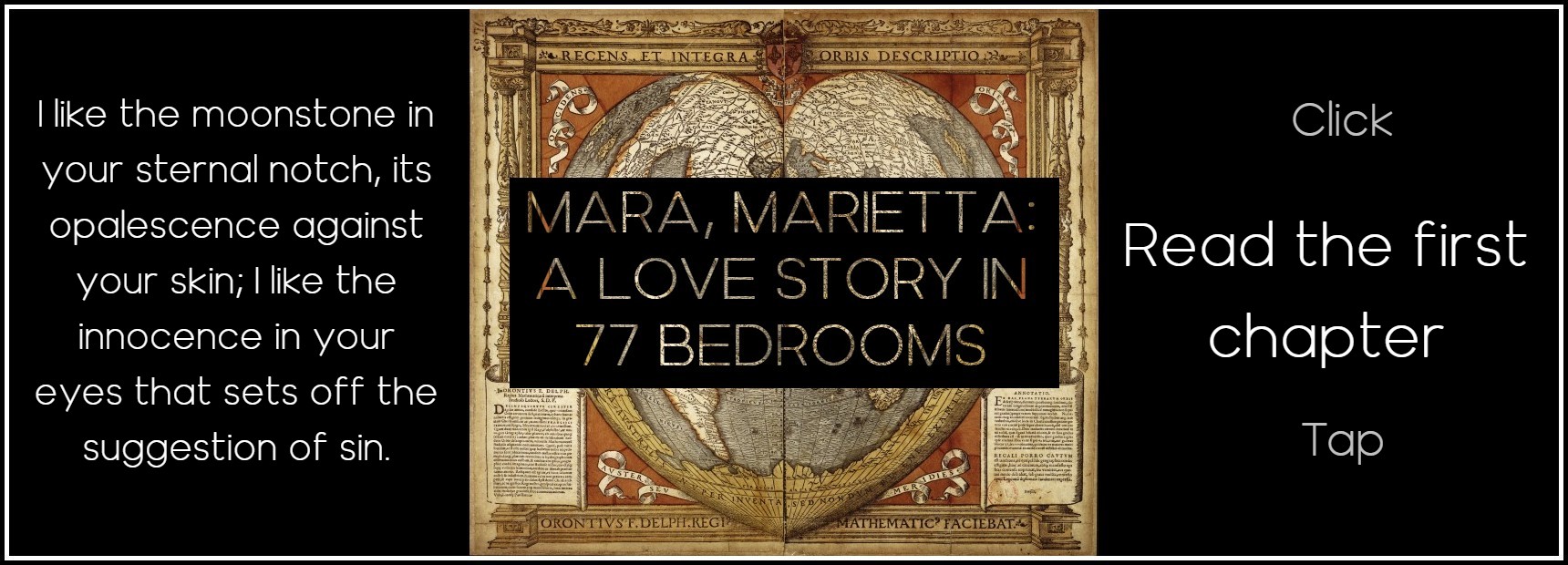
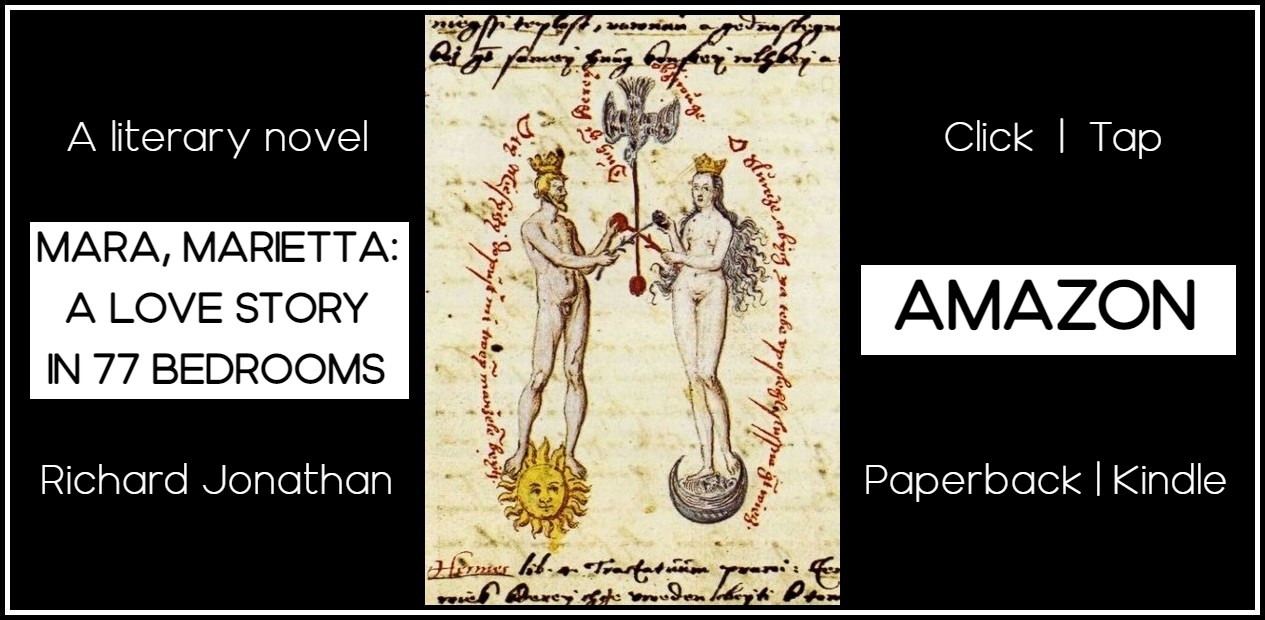

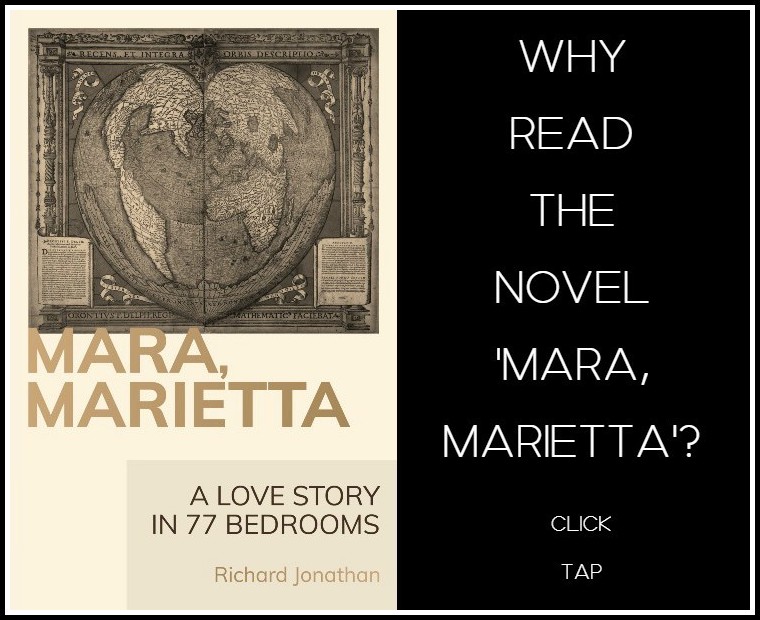





Comments